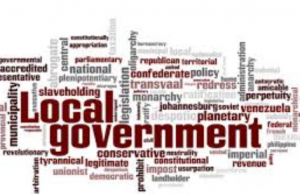- Have any questions?
- [email protected]
Importance of Local Government Autonomy

Nigeria’s Unemployment Rate
17 March 2021
The under-utilisation of Freedom of Information Act in Nigeria: A panacea
17 March 2021Many difficulties face local government in the 21st century: delivering administrations; absence of account; overseeing staff; engaging residents; making new partnerships, and quickly advancing technology and socioeconomics.
So, where will we be in years to come? Would we keep on seeing an erosion of council authority, capacity and administration delivery? Would markets prove fit for filling the holes? Or then again, would we see a reassertion of the significance of local government, with new models for regional integration, public money and administrations that underline a shared job?
Disregarding the government’s intense surge toward privatising public products and ventures, the profit-driven model will prove inadequate to handle the multifaceted nature of issues and services required. The necessities of residents and networks will require coordinated administrations that will prompt a more grounded acknowledgement on the part of local government – and the inevitable need to modify its ability.

Nonetheless, this will require the local government to reevaluate its income sources, renegotiate labour relations, and reconstruct residents’ perspectives on the local area and society.
Re-examining Revenue
Notwithstanding the unprecedented economic crises of the previous few years, spending cuts can go so far in expanding profitability; there is a limit to productivity dependent on cost reduction.
Most gatherings are confronted with an expanding need for reinvestment in assets and administrations, going from wellbeing and social consideration to training and foundation. In any case, current sources of income are essentially founded on backward tax assessment – local charge deals expense and client charges.
We need to reconsider these types of revenue, which will lead the public authority to take advantage of the economy’s developing pieces with new tax assessment rules, such as an expense on web deals.
Rebuilding work relations
The financial emergency has spurred another discussion between council leaders and associations. Notwithstanding, as we move into a time of labour deficiency, because of economic expansion consolidated with demographic changes and a maturing populace, the local government should show an alluring employer.
To do that, local specialists will take a gander at worker relations, zeroing in on expanding its appeal to youthful representatives and noting the test of adaptability and vocation improvement. Besides, the multifaceted nature of the issues confronting local government will lead boards to place more trust in front line workers, permitting them to work with greater independence.
Citizenship and participative administration
Individuals engage with what they feel part of and value what they help to make. Engaging citizens and local communities are critical regarding building up a feeling of possession in local administration.
Working with residents permits councils to adjust administrations depending on real necessities. For example, during austerity seasons, holding sufficient data to base the scarce assets, allotment is fundamental. Needs evaluations are a significant examination apparatus for focusing on services to address neglected and under-addressed issues; they are crucial for hierarchical and local area planning endeavours.
Our ageing populace, consolidated with increased life expectancy, will place a significant strain on government assets. It will prompt a reconsideration and acknowledgement of more aged individuals and their considerable yet regularly imperceptible commitments to society – from really focusing on grandkids to tutoring future business pioneers.
Social economy and private suppliers
In a move away from public control, private delivery of products and ventures, social undertaking have prospered. They appear to offer another elective that overcomes any barrier between the rights-driven public administrations model and the profits driven private area.
Numerous public products and ventures can be given by social enterprises, from the board of shared pools to security services, roads and framework.
These models advance private interest in administrations. What’s more, by offering private responses to public inquiries, they urge and enable areas to tackle their issues. Nonetheless, these methodologies additionally lead to fracture, making co-activity more troublesome.
Committees need to reach past their capacity and address local worries with adjoining specialists. Local councils are frequently centred around tending to a solitary issue, for example, transportation, energy, or water, when a more extensive glance at all open administrations is needed to address the difficulties of maintainable, far-reaching planning.

